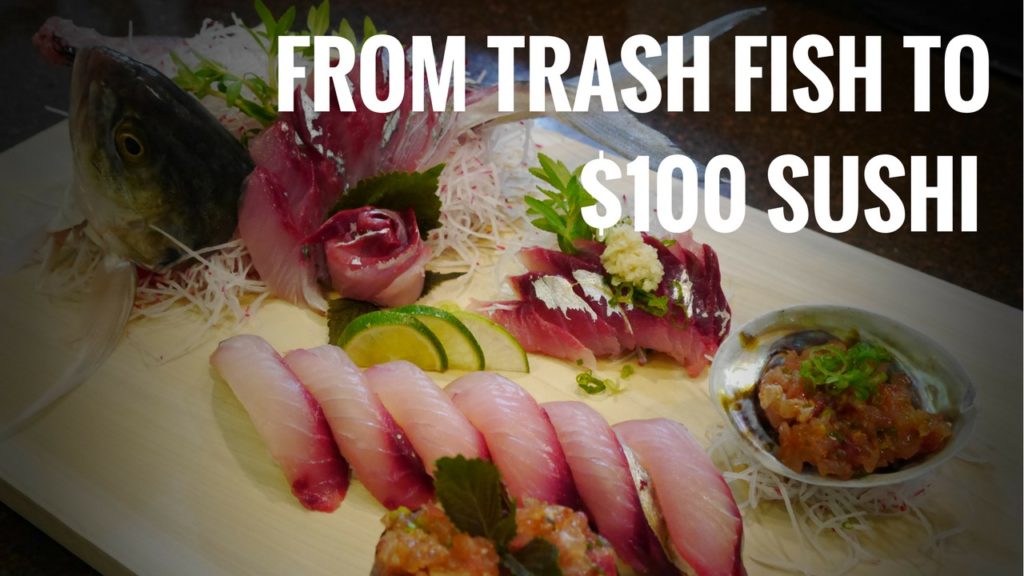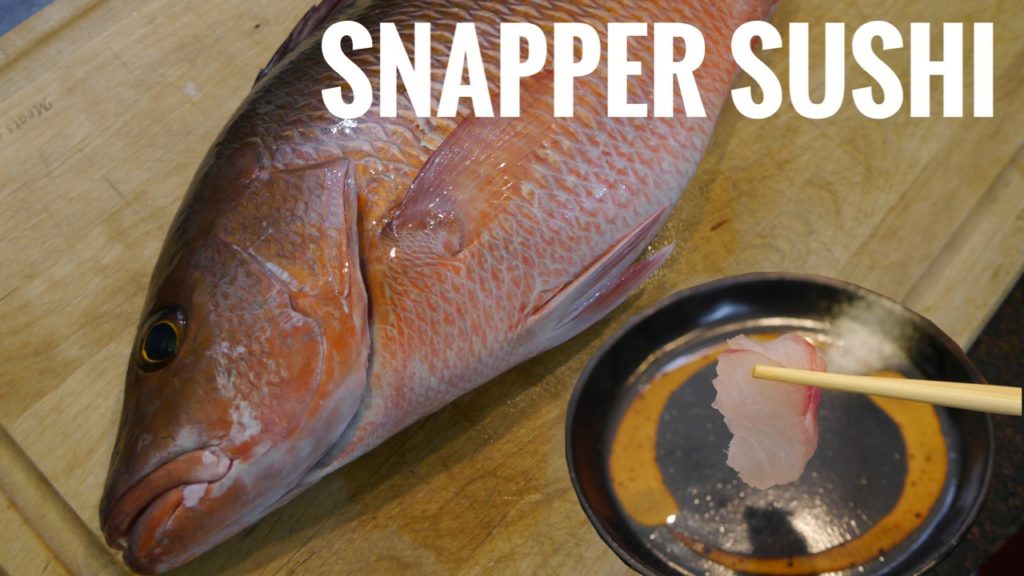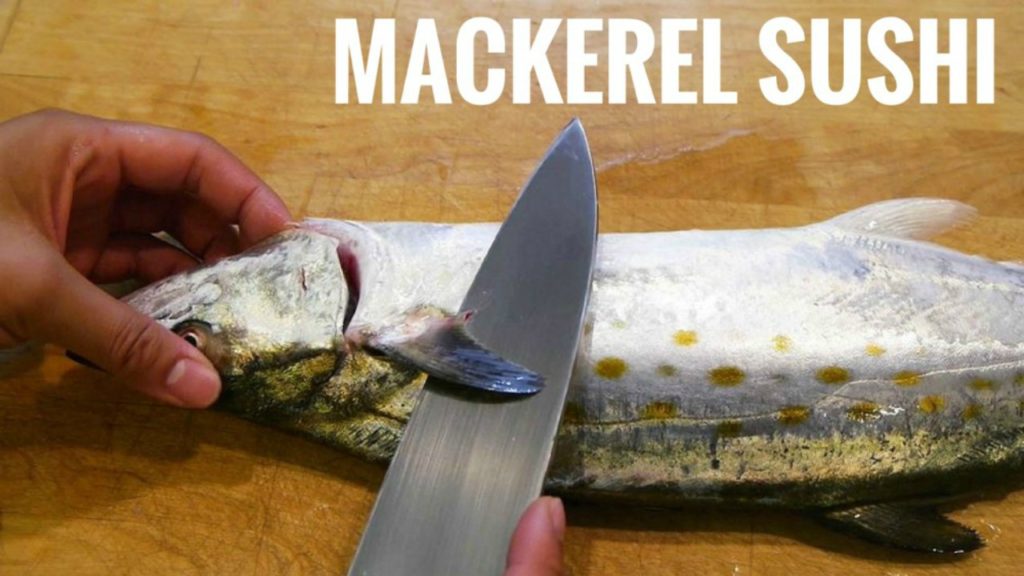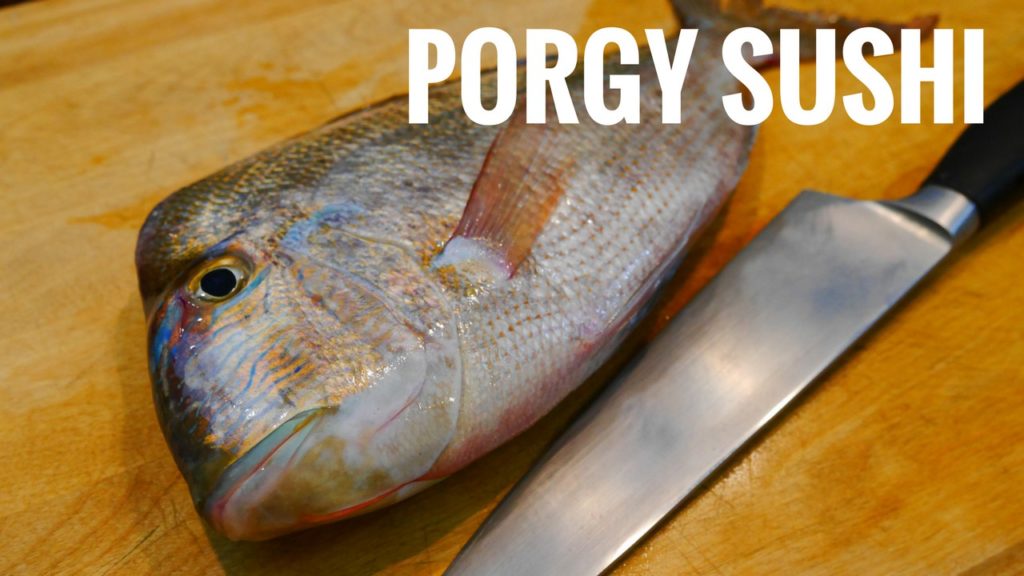I often get asked “Is freezing salmon for sushi necessary?” The short answer is yes. But the really answer is “maybe.” The truth is, this is a loaded question depending on who you ask. Different stakeholders will give you contradicting answers. But the common answer is, yes. It’s not only safer, but economical for restaurants (more on this later).
In the 10+ years working in the sushi industry, I’ve never once saw a worm in any farm raised salmons. I’ve filleted thousands of pounds of salmon from different countries and not once was parasite ever an issue. For the most part, salmon farms do their best to produce parasite free products. In fact, Norway has stayed progressive on this topic and are able to convince many importers that their farmed salmon are parasite free thru research.
In general, to determine whether if you need to freeze any kind of fish for raw consumption, you’ll need to calculate many factors. Such as, is it a Fresh or Saltwater fish? If saltwater, is the specie known to carry parasites? Is it farmed, and if so, was it grown in a recirculating closed loop system or open-net or pond? Is it fed processed pellet or wild harvested untreated feed?
Most Comprehensive Sushi Course Online
There are so many factors to consider and there are loads of studies supporting different stakeholders, whether they’re food regulators or multi-million dollar aquaculture operations trying to convince authorities that their salmon is parasite free. (Norway Seafood Council tell Hong Kong their farmed salmon is parasite free)
The topic is on-going and beyond the scope of this article. For you guys at home, it doesn’t need to be complicated. Use the following questions below to help you:
Was the salmon harvested from the wild?
If yes, then you need to freeze it. Salmon from saltwater may carry roundworms (anisakis). Not all saltwater fish will have worms. Although anisakis cannot reproduce in humans, it can still make you very sick and possibly cause stomach ulcers.
On the other hand, if you caught the salmon from freshwater, then it’s an absolute YES. There have been several cases of tapeworm infection linked to eating unfrozen raw fish taken from rivers, ponds, and lakes. Not just from salmon, but from other freshwater species too. Tapeworms are known to grow and reproduce in humans. Nasty bug you don’t want.
Should I freeze salmon I purchased from the store?
For sushi, yes. You don’t know if the farm salmon you purchased was raised in an parasite-free environment or not. Was the fish fed wild harvested feed that may contain parasites and infect the stock? Just play it safe and freeze it.
I recommend buying whole salmons and fillet it yourself at home before freezing it for sushi. This way you’ll have control over the cutting surface used without worrying about cross-contamination.
(FYI, freezing doesn’t destroy bacteria, only heat will. This is why I never buy pre-cut fillets from stores for sushi unless it’s been specifically handled for raw consumption)
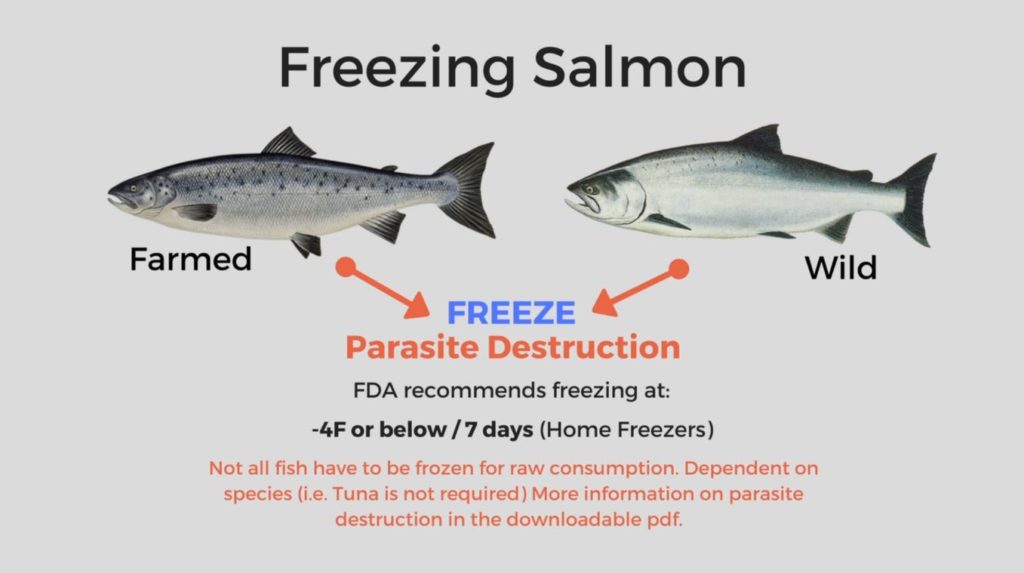
How long should I freeze salmon before eating it raw?
FDA currently recommends freezing fish for 7 days for parasite destruction. How is the 7 days determined? I don’t know. Does it encapsulate a range of parasites with different destruction periods? I don’t know. If anyone knows, please message me on Facebook.

How long can I freeze salmon before quality diminishes?
Months. If you started with a fresh salmon, then the quality of the meat will be preserved even longer. There have been times where I’ve frozen salmon for over a couple of months and the taste and texture was still excellent for sashimi. The color also did not change.
Salmon is a rare fish where the quality can be preserved in the freezer for extended time. This is not possible with most other fish without drip issues, degradation, or color changes occurring without the use of CO gas.
Now if you invest in a vacuum sealer, then it will last for even longer. You’ll be surprised how long your salmon was frozen before it got on your plate at your local sushi restaurant. 99% of the time, any chef that tells you that they serve freshly cut salmon daily is BSing you.
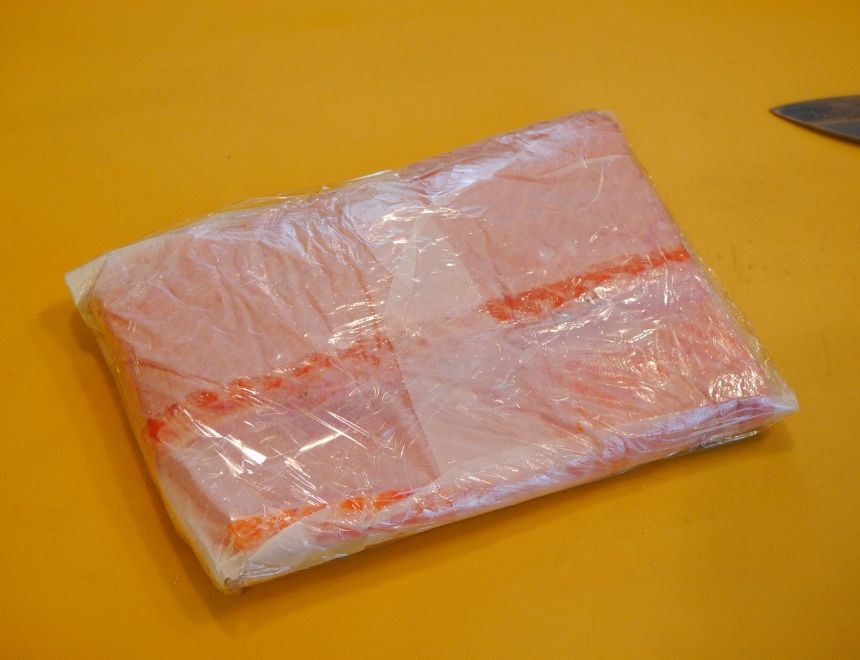
Why do Sushi Restaurants Freeze Salmon for so Long?
Simple. Because of economic. If a sushi restaurant only sells 5 pounds of salmon a night but they have to order a 100lb case to get the lowest price, then what do you think they’ll do with all the fish once its been fabricated? Yep, straight into the freezer and only take out what is needed for each shift. It’s a win-win, chefs provide a safer product and also makes more business sense.
What is the Most Commonly Used Salmon for Sushi?
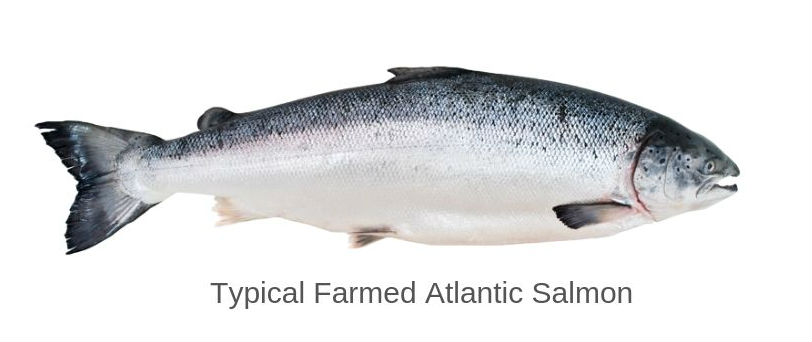
Atlantic Salmon. Most farmed salmons in the world are Atlantic Salmon. Easier to produce, higher fat content, more demand.
Watch How to Fillet Salmon:
So now that you learned how to fillet salmon for sushi with a special knife, do you want to learn how to break it down even further for sushi and sashimi applications? Learn more on my Udemy course.
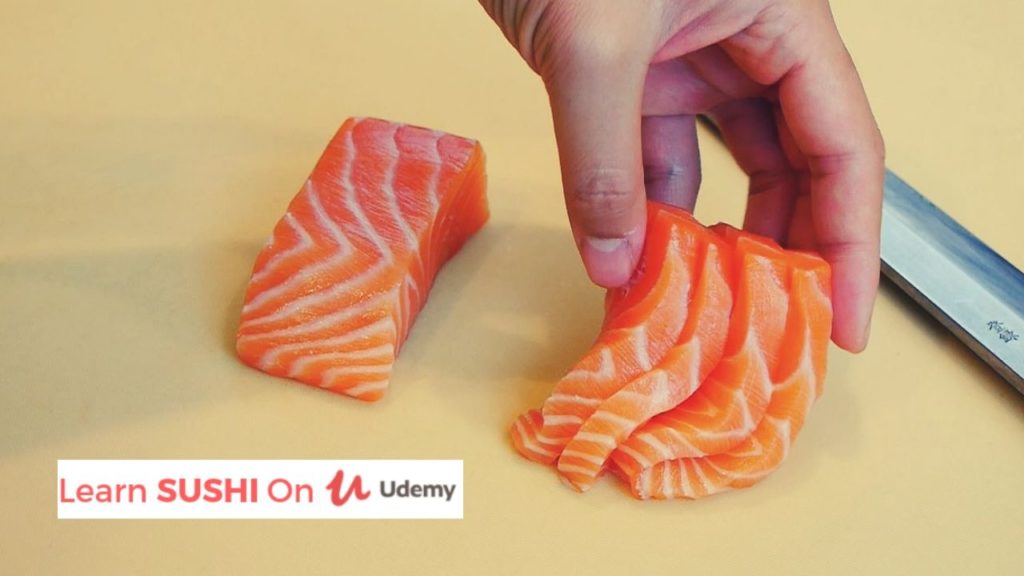
If want to learn more about making sushi, check out my online sushi course on Udemy. There are over 40 video lectures and resources to help you get started making sushi at home. Learn Sushi Online.







